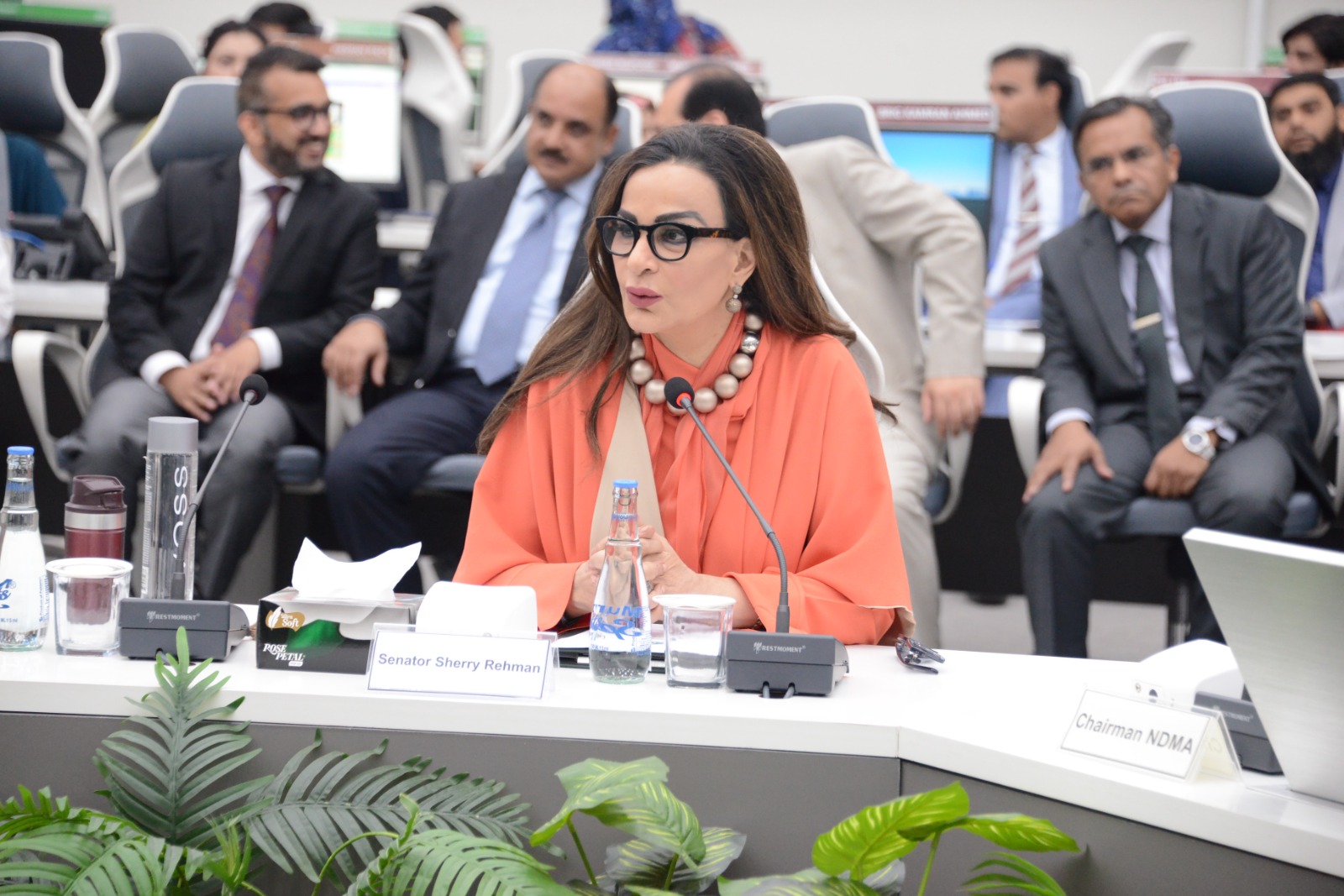
Islamabad, May 21, 2025(News Desk): Senator Sherry Rehman, Chair of the Senate Standing Committee on Climate Change and Environmental Coordination, sounded the alarm on Pakistan’s deepening water insecurity at the National Disaster Management Authority’s (NDMA) briefing on the Summer Contingency Plan 2025 by Chairman NDMA Lieutenant General Inam Haider Malik and his team. Citing India’s unilateral suspension of the Indus Waters Treaty (IWT) and growing climate shocks to river flows, Senator Rehman called for immediate, coordinated action on safeguarding Pakistan’s most vital natural resource—the Indus River. “The Indus River is Pakistan’s lifeline—over 90% of our agriculture depends on it. And yet, it is already under strain from climate change, glacial retreat, and now upstream aggression,” she warned. “Today, more than 240 million Pakistanis are effectively being held hostage by these pressures.”
Referring to India’s unilateral declaration that the Indus Waters Treaty (IWT) is “in abeyance,” Senator Rehman urged NDMA to collaborate with the Ministry of Climate Change and Ministry of Water Resources to conduct a joint assessment.
“This is not just a violation of international law—it is a form of water and climate weaponisation by India. If the water flow from mountains to delta is compromised, we will witness the salinisation of breadbaskets-especially Sindh and a collapse in food security,” she cautioned. “We urgently need technical updates on this issue, especially since the Indus Water Commission hasn’t met for over two years.”
At the high-level briefing, NDMA shared data indicating an early and volatile monsoon season, with increased probability of cloudbursts, glacial lake outburst floods (GLOFs), and windstorms. Chairman NDMA Lieutenant General Inam Haider Malik underscored the scale of Pakistan’s exposure, stating, “We are monitoring climate signals from 270 earth and weather satellites and are now able to offer early, confirmatory alerts using seismic, hydromet, and oceanic data systems.” Utilising a comprehensive archive of disaster records dating back to 1900, NDMA can predict climate-related disasters up to ten months in advance. NDMA has developed a mobile application to support public awareness by delivering timely alerts and educational messages in multiple languages. The agency stressed the importance of data sharing with provincial governments to ensure coordinated and effective responses to environmental threats. NDMA also revealed that Pakistan loses $4 million annually due to climate-intensified disasters, and emphasized the integration of up to 300 datasets—including infrastructure vulnerability and population density—for enhanced forecasting and localized warnings.
Senator Rehman acknowledged NDMA’s technological advancements but emphasized that these tools must now translate into province-specific contingency planning. “The real test is not just prediction but preparedness. We need climate adaptation where it matters—on the ground, in people’s homes, and in our fields.” Senator Rehman also called attention to the urgent need for rainwater harvesting across Pakistan. “From Balochistan and Sindh to Punjab and KP, we need rainwater harvesting projects built into the PSDP. Our groundwater is depleting, and our soil is increasingly saline. This kind of planning cannot be an afterthought.” Referencing Sindh’s post-flood Resilient Housing Initiative, she reiterated the need to move away from traditional disaster responses. “Displacement is not a solution. We need resilient infrastructure, and that means long-term investment, planning, and partnerships.” In conclusion, Senator Rehman praised NDMA for its leadership in real-time climate forecasting and data collection, but urged “stronger collaboration, clearer pathways, and a whole-of-government approach” to meet the climate crisis head-on. “We will keep coming back to follow up, and we expect NDMA to keep coming back to us with concrete, actionable updates,” she said. “Pakistan cannot afford to be complacent when its very lifeline the Indus is at risk.”
The NDMA briefing was attended by members of the Senate Standing Committee on Climate Change and Environmental Coordination, including Senator Shahzaib Durrani, Senator Naseema Ehsan, and Senator Quratul Ain Marri, who contributed valuable insights to the discussion.